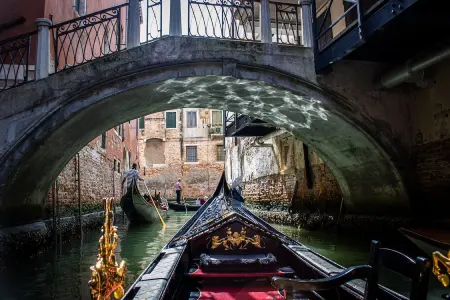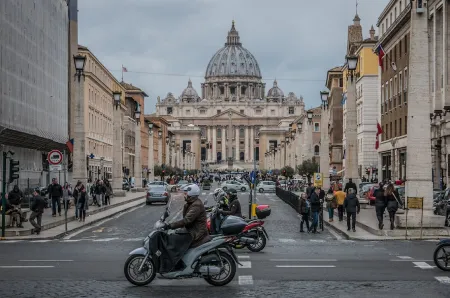Ever wondered, what do Italians think of Americans?
If you’re planning a journey to Italy or contemplating a long-term stay, you might be curious about how Italians view Americans.
As an Italian, I’ve hesitated to tackle this topic, fearing stereotypes and subjectivity.
However, I’ve decided to shed some light on this matter, drawing from my experiences growing up in Italy and interactions with American friends and travelers.
In this article, we’ll embark on a curious exploration of what Italians generally think of Americans.
Mutual Admiration Society

Italians have noticed something special about Americans – their genuine fascination with Italy.
From ancient Roman monuments to art, food, wine, fashion, and design, Americans seem to adore all things Italian.
This mutual admiration warms the hearts of Italians, who feel flattered by the appreciation lavished upon their culture.
A Respectful Exchange
Despite being proud of Italy’s rich history and artistry, Italians don’t perceive themselves as superior to their American admirers.
Instead, they recognize the importance of American tourism, which significantly contributes to Italy’s economy.
Numerous towns and cities depend on American tourists to thrive, creating a symbiotic relationship.
The American Dream Shines Bright

Italians hold the American dream in high regard. They see America as a place where individual success and economic independence can be achieved, often more easily than in Italy.
Many Italians believe that venturing abroad, perhaps to America, is the path to prosperity, considering the challenges they face in their homeland.
Independence from Family Ties
Italians imagine that achieving economic independence, typically found far from one’s place of origin, can lead to detachment from the family.
They envision Americans calling their parents once a week and reserving family gatherings for special occasions.
In contrast, Italians maintain close ties and frequent contact with their families.
The Perception of Wealth
A stereotype deeply ingrained in Italy is the belief that all Americans are affluent.
Italians picture Americans driving large, expensive cars, living in mansions with manicured gardens, and wearing designer clothes.
This perception stems partly from the portrayal of America in movies.
Real Life vs. Reel Life
American cinema has had a profound influence on Italians since the 1950s.
The portrayal of American life in movies and TV series has contributed to the perception that Americans resemble characters on the big screen.
Italians sometimes struggle to distinguish between reality and the fictional world depicted in films.
The View on Education
Italian students often dream of studying in the United States. The prestige of institutions like Harvard, Stanford, and MIT has left a lasting impression.
American university research is widely followed by the Italian press, enhancing the perception that American education is superior.
Debunking Dietary Stereotypes
Italian stereotypes suggest that American cuisine consists solely of fast food and is inherently unhealthy.
However, this perception overlooks the diversity of American food options, including organic choices and nutritious meals.
Italians may need to revisit their assumptions about American diets.
Spotting Americans Abroad
Thanks to the influence of American culture, Italians can often identify as American tourists.
The distinctive sportswear worn by Americans during leisure activities, along with their use of English, sets them apart.
The inclination of Americans to leave generous tips is also noticed and appreciated.
Cultural Adaptation Challenges
While Italy’s rich cultural heritage is a source of fascination for many American visitors, adapting to Italian customs and social norms can sometimes prove challenging.
These adaptation hurdles aren’t unique to Americans but are a common experience for travelers from diverse backgrounds.
It’s essential to recognize that these differences don’t imply any cultural superiority or inferiority; they are simply part of the tapestry of international travel.
One common challenge American travelers face is navigating the intricacies of Italian mealtime etiquette.
In Italy, dining is a cherished social experience, and there are unspoken rules governing everything from the order of courses to how to use utensils.
Americans may find themselves unsure of when to use a fork and knife, how to properly savor a coffee after a meal, or when it’s appropriate to ask for the check.
While these customs may initially seem bewildering, they are a testament to Italy’s rich culinary heritage and the importance of food in Italian culture.
Another aspect that can puzzle Americans is Italy’s relaxed approach to punctuality. Italians often prioritize social connections and leisurely interactions over strict adherence to schedules.
This more laid-back attitude towards time can lead to misunderstandings, especially when Americans are accustomed to a more rigid sense of punctuality.
However, it’s essential to remember that this difference doesn’t diminish the value of either approach but rather reflects distinct cultural priorities.
One of the delightful aspects of American culture that Italians genuinely appreciate is the art of conversation.
American travelers often bring with them a natural curiosity and a willingness to engage in meaningful dialogues.
This inclination to ask thought-provoking questions and discuss a wide range of topics fosters cultural exchange and leaves a positive impression on the Italians they encounter.
Whether it’s chatting with locals in a charming Italian village, sharing travel stories over a glass of wine, or engaging in conversations with tour guides and museum staff, American tourists have a knack for making meaningful connections.
Italians value these interactions, as they provide opportunities for cultural exchange, mutual learning, and a deeper understanding of each other’s perspectives.
The ability to converse openly and respectfully is a bridge that connects people from different backgrounds.
American travelers, with their friendly and communicative nature, contribute to the rich tapestry of cultural interactions in Italy.
These exchanges not only enhance the travel experience but also strengthen the bonds between the two nations.
Conclusion
In conclusion, Italians’ perceptions of Americans are a complex tapestry, woven from admiration, stereotypes, cultural exchanges, and personal experiences.
While some stereotypes persist, Italians generally hold Americans in high regard, valuing the friendship and cultural interactions between the two nations.
Travelers from the United States can anticipate a warm welcome, along with occasional challenges in adapting to Italian customs.
Ultimately, the bond between Italy and America remains strong, grounded in mutual respect and curiosity.










